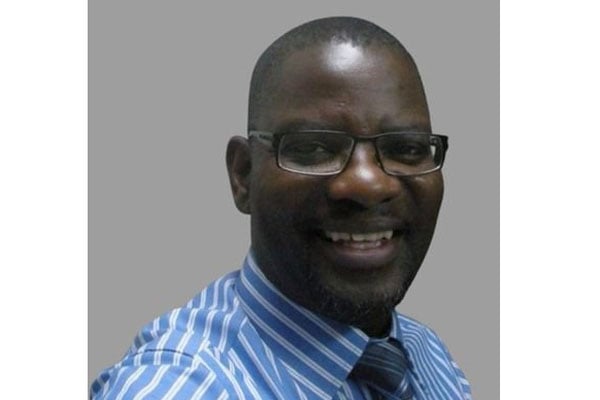Prime
Regulation of churches is plan to blur separation between Church and State

Government is reportedly considering the regulation of churches and, pursuant to this proposed policy, districts will have religious and faith-based organisation committees.
These committees shall be composed of three political leaders and four technical officers and shall have powers to co-opt technical officers to deal with specific issues. Among those that will sit on the committees are Resident District Commissioners, the District Internal Security Officers and representatives of faith-based organisations.
Sure, I agree that churches carrying salvation to the needy with the intent of leaving them needier than they found them is morally reprehensible. Again, I find it dangerous when churches such as Kibwetere’s reflect the paranoia and narrow-mindedness of their pastor before his apocalyptic beliefs lead his congregation towards the hellish inferno that Kanungu became.
It can also be viewed as comical when some pastors offer to keep their male flock free from sin by shouldering the burden of having sexual intercourse with the females in the congregation! One wonders how such congregations can be so gullible, but it happens.
Although the government plays a key role in I read DP president Norbert Mao’s opinion piece in Sunday Monitor of November 10 entitled, “Active boycott is imperative when elections become an empty ritual,” and was happy that a major political player was beginning to think more seriously and courageously about Uganda’s Opposition strategies vis-à-vis causing change. Chairman Mao, as we fondly call him, wrote in part as follows:
“Imagine a soccer match where two teams face each other. One team is the reigning champion.
The other team is the challenger that the trophy has eluded for decades. The reigning champion is captained by a player who is also the referee. He runs around with a whistle in his mouth. When he is in possession of the ball he blows the whistle to stop the match to frustrate challengers who seek to tackle him and dispossess him of the ball.
“He also clutches a red card in one hand. He brandishes the yellow card threateningly at any challenger. Any challenger who dares tackle him is shown the red card and sent off the field. His boots have nails under the soles. He has no scruples about injuring anyone who comes too close to the ball.”
I couldn’t have agreed more with his analogy. Uganda’s Opposition political parties and change seekers have for ages been engaged in electoral and political processes that are superintended over by institutions expressly designed by the oligarchy to facilitate their perpetual stay in power, rather than levelling the ground for fair political competition.
This, as I wrote in Sunday Monitor of November 10, under the heading “Which way Uganda on citizen empowerment?” beats logic, common sense and even science.
No sane human being, let alone leader, can be doing the same thing over and over again, expecting a different result. Gen Mugisha Muntu puts it even better, albeit in a different context. He says: “You can’t plant lemon and reap oranges.”
In other words, it is foolhardy to be blindly optimistic that Gen Museveni’s regime can be somewhat, may be miraculously, overwhelmed through elections presided over by an Electoral Commission whose objective is to keep the regime in power.
For starters, this is not borne out of cowardice, pessimism or defeatism. This is realism borne out of election experiences under the NRM since 1996.
I believe that leaders should possess the capacity to learn, unlearn and relearn. Put differently, leaders should have the ability to programme, deprogramme and reprogramme their minds and thoughts whenever it is necessary.
No army in the world fights a winning war using the same strategy, year in, year out. If a leader has been pursuing a particular strategy to ameliorate a problem without success, he/she must definitely do an honest assessment and change strategy so as to win.
We need to be clear here. Hegemonic regimes create institutions that primarily serve their personal interests rather than those of the people and nation. The institutions serve the people and nation by default or when through that service, regime objectives are met.
Their objectives usually rotate around continued stay in power and domination. Uganda is not an exception to that rule. Many of Uganda’s institutions serve the whims of the person of Gen Museveni and his cronies, not the country and its citizens.
It is, therefore, incumbent upon the people fighting for change to choose whether they can realistically cause change by engaging the regime through the institutions it created to perpetuate its domination and stay in power or employ strategies that are out of reach and or control of the regime.
This is a debate that all political parties and change seekers should, without sentiment or fear of contradiction, engage in and resolve. It won’t be helpful to run away from it.
The question is, do we genuinely believe that the Opposition political parties as they are today can overwhelm Museveni’s juggernaut in an election that is not free, fair or credible and take over power?
If the answer is in the affirmative then we need to discuss what should be done to achieve this. If the answer is a no, then we should discuss alternative strategies to employ to achieve the stated objective namely, change of power.
I implore Chairman Mao to initiate this debate within DP organs and in the Opposition as a whole.
shielding the population from such despicable types, when one reads about the committee set up by government with State-appointed politicians to regulate faith-based organisations, one senses something amiss with this outwardly innocent, but inwardly opportunistic policy.
First off, it sounds like a plan to restrain the freedom to practice one’s faith and, in the process, tear down the “wall of separation” between the church and the State in ways that the government can show preference to a certain church over another based on the degree of allegiance paid to the State.
So if your church is led by a Joseph Kabuleta and thus speaks out of tune in terms of what is acceptable or unacceptable to government, that church can and will be “regulated”.
And this becomes even more glaring when district committees are occupied by representatives of faith-based organisations hand-picked by a State hell-bent on employing religion for political purposes.
Which, in the end, empties religion of its eternal meaning and becomes just one more cynical method of keeping power.
It seems the government is not taking any chances or any prisoners on this one, it needs to control the passions which infuse all things religious.
For as we come closer to the end of the government’s rope, it has decided to tie a knot to hold on and possibly use that rope to hang any dissidents or detractors.
This policy also carries the seeds of theocracy in which a State religion or State-based faiths shall not only be tools for silencing opposing views, but shall be used to proclaim the divine right of our leaders to rule.
I have often heard Ugandans say leaders come from God and this refrain shall be misemployed more frequently to enlarge the civil capacities of the State to the level of the divine right of kings in medieval Europe.
In those days, kings used the concept of divine rule for furthering their legitimacy. The driving force behind the success of the divine right of kings was the idea of punishment to enforce obedience. In reality, this established fear among a sovereign’s subjects, and in some ways made the monarchs of this period rather tyrannical. To assert the obedience of their subjects they would hold public executions, which most certainly generated fear.
The plot thickens when you remember what President Museveni said recently on enforcing the death penalty.
In that report, President Museveni said his “Christian background” had prevented him from going ahead with executions, but this “leniency” was encouraging criminals.
“I have not been assenting to hanging of convicts because of my Christian background but being lenient is causing people to think they can cause harm and get away with it,” he said.
And this end to his leniency falls neatly in line with the (public) executions that enforced the divine right of kings in medieval Europe.
To make matters worse, the President invoked his Christian background in a manner that indicates some policies are favoured by him based on a personal belief, not a legal requirement.
One wonders if such personal considerations will inform his appointments of who should sit on these committees to regulate faith-based organisations and thereby impose his divine will through proxies such as Resident District Commissioners.
After all, as many people love to remind us, all authority comes from God and the President will thus become “the figure of God’s majesty, His captain, steward, deputy-elect, anointed…” as he ensures religion and State become one blunt instrument to bludgeon religious dissent.
Mr Matogo is content editor and writer with KQ Hub Africa
[email protected]




